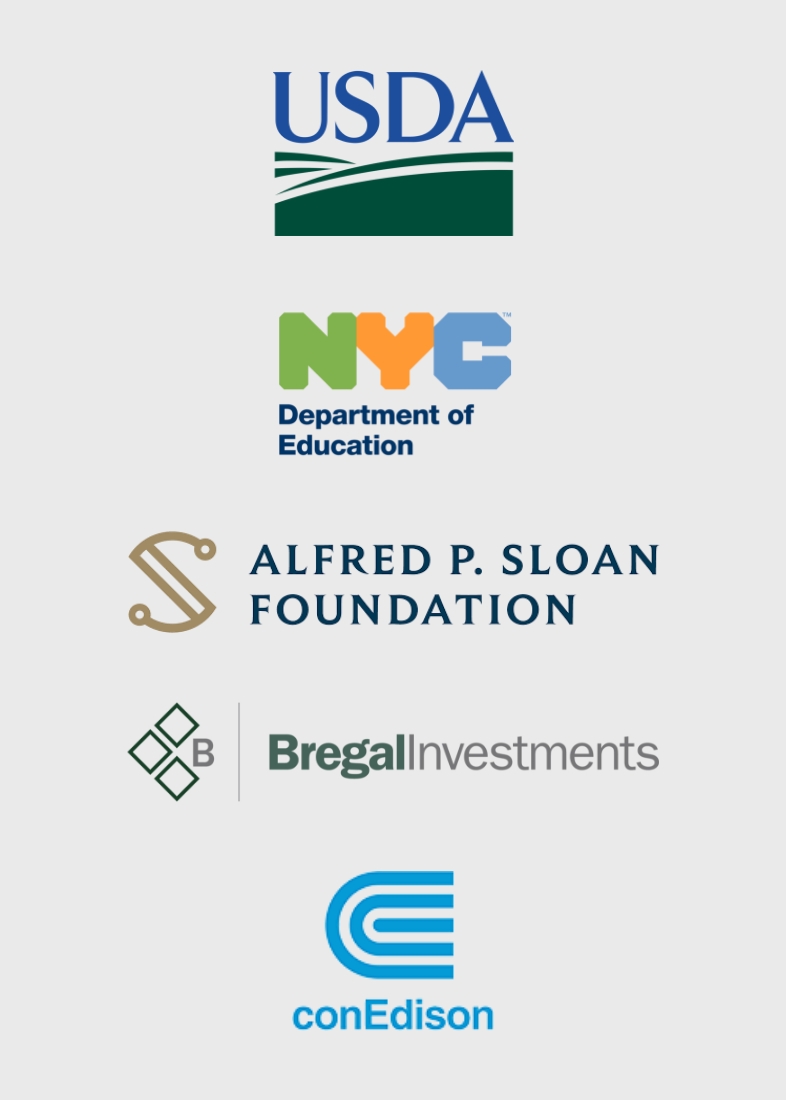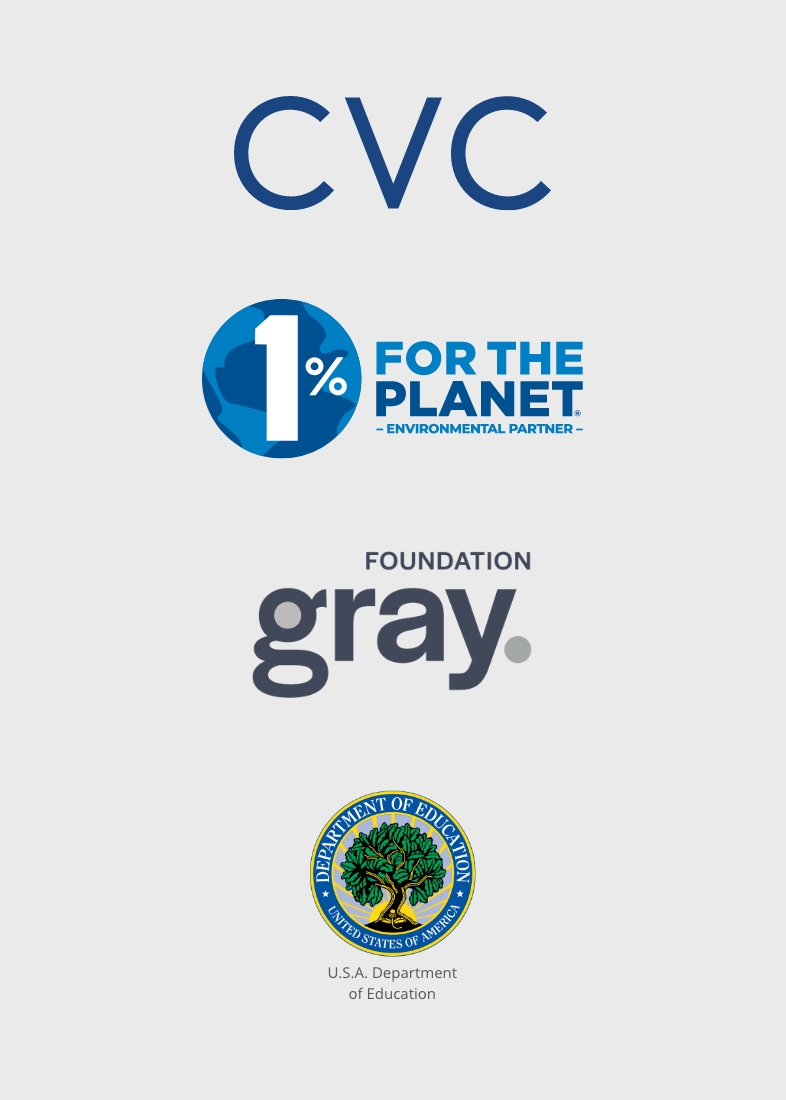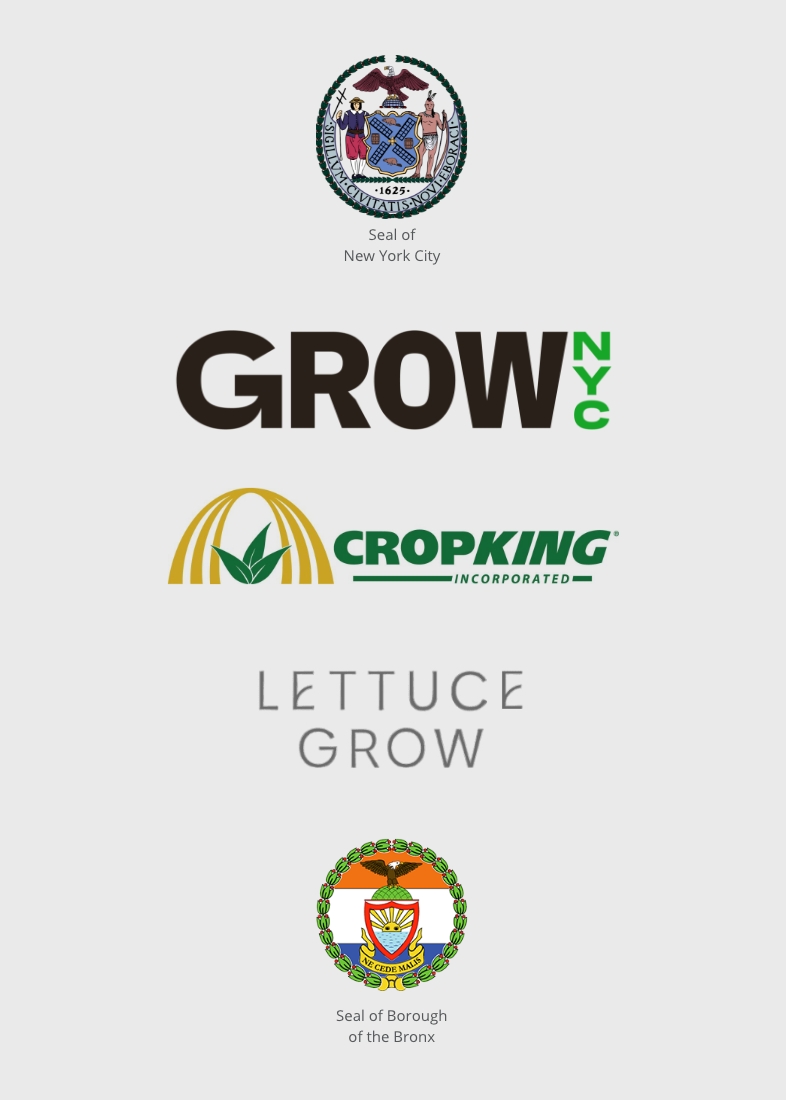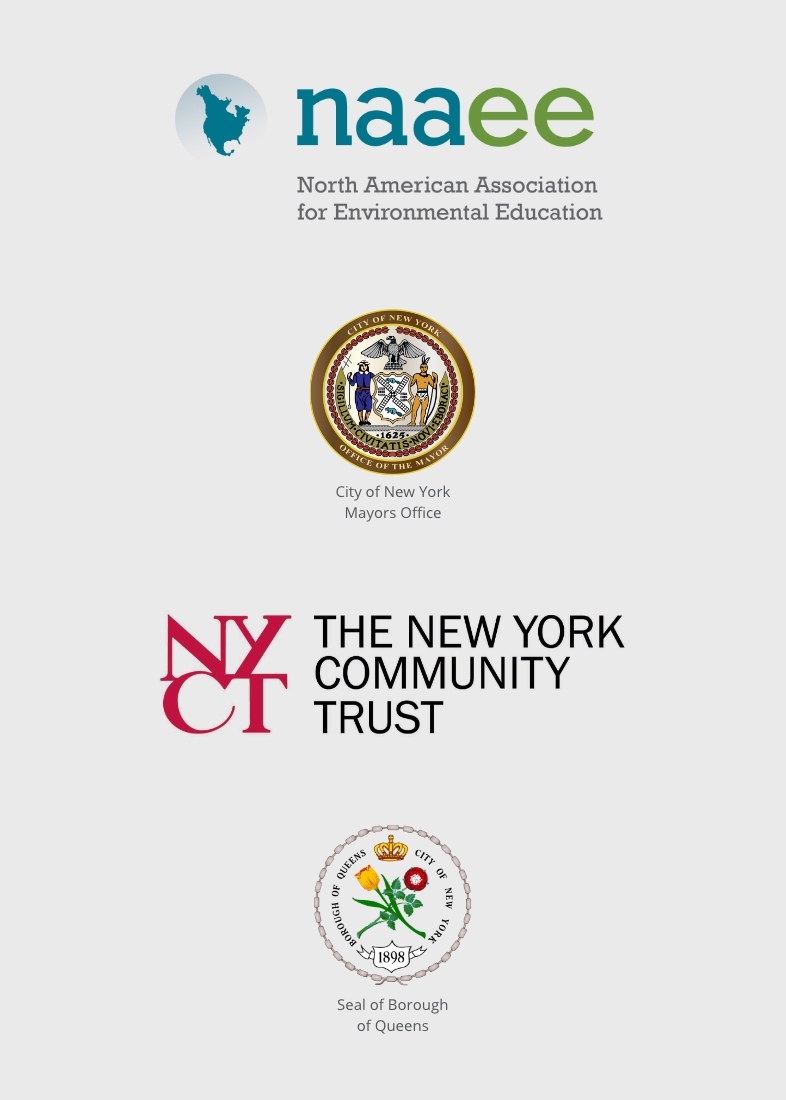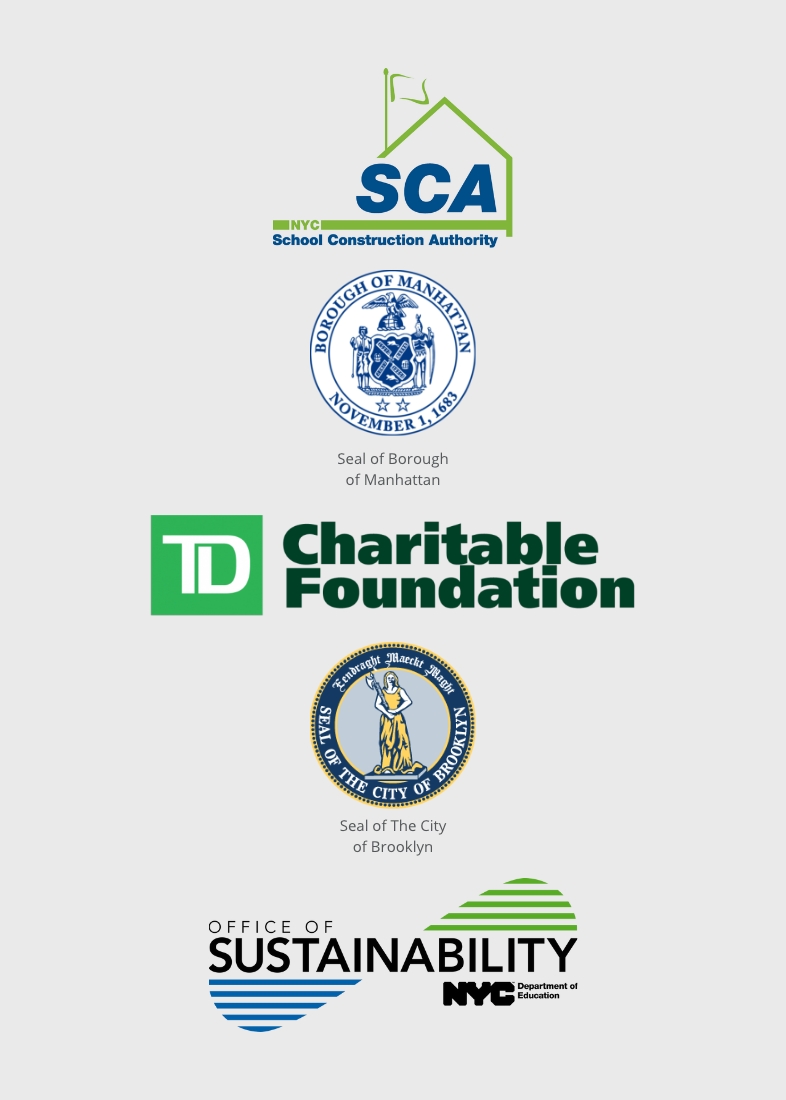9 – 12th Grade
The Greenhouse Project 9-12th grade Science + Sustainability curriculum is comprised of modules and subject specific labs. The modules introduce students to hydroponic farming, offer students the opportunity to design and build their own hydroponic and aquaponic systems, and connect to topics covered in life science courses such as Living Environment, AP Environmental Science, and AP Biology. The labs can be used to fulfill the 20hrs lab time required for the NYS Regents exams.
Farming Foundations
This module provides the intellectual and practical infrastructure for students and teachers as they embark on their mission to maintain a fully operational hydroponic farm within the context of a science lab. This foundation unit speaks directly to the unique systems and practices found within the Greenhouse Classroom and helps students keep their farm running throughout the school year, while introducing them to hands-on investigations that can be designed and implemented in the hydroponic systems.
Farming For A Sustainable Future
This module provides students and teachers a deep dive into hydroponic and aquaponic farming and sustainability. The lessons complement the Land and Water Use Unit of the AP Environmental Science curriculum with a focus on the impacts of agricultural practices including irrigation and pest control methods and impacts of overfishing. Students also engage with sustainability topics (impacts of urbanization) and examine their own ecological footprints on the path to discussing and determining what sustainable agriculture looks like in practice.
The Hydroponic Games: A Hydroponic Design Challenge
This module engages students in an engineering design challenge to design and build functioning hydroponic systems. Working in groups, students use the iterative design process to revise their system designs and provide constructive feedback to each other throughout the module. Students also have the opportunity to apply what they have learned about water chemistry and how hydroponic systems work to ensure their systems function and support the growth and development of multiple crops.
The Aquaponic Games: An Aquaponic Design Challenge
This module engages students in an engineering design challenge to design a functioning aquaponics system. Working in groups, students use the iterative design process to revise their system designs and provide constructive feedback to each other throughout the module. Students learn about the major threats to ocean biodiversity and have the opportunity to design and implement controlled experiments in an aquaponic system. This module also includes instructions on how to build a 10 gallon aquaponic system should an aquaponics tank not be present in the classroom.
Living Environment Labs
In this lab series, students will identify how energy affects the life cycle of the plant. Students will be asked to explain how energy and matter are interconnected through each phase of plant development: seed & embryo, roots & shoots, leaves & stems, and flower.
Chemistry in Hydroponics Series 1: Introduction
In this lab series, students will investigate the features of hydroponic farming while practicing Chemistry Regents concepts. Each lab offers a Daily Guiding Question, Objectives, NYS Physical Setting/Chemistry Standards, Scientific Inquiry key ideas and performance indicators, notes for the teacher, and a Lab Student Page.
Chemistry in Hydroponics Series 2: Color
In this lab series, students will investigate the features of hydroponic farming while practicing Chemistry Regents concepts. Each lab offers a Daily Guiding Question, Objectives, NYS Physical Setting/Chemistry Standards, Scientific Inquiry key ideas and performance indicators, notes for the teacher, and a Lab Student Page.
Chemistry in Hydroponics Series 3: Biochemistry
In this lab series, students will investigate the features of hydroponic farming while exploring biochemistry concepts including metabolism, enzymes, as well as micro and macro nutrients.
NY Sun Works Research Guidebook
The NY Sun Works Science Research Guidebook is designed to assist teachers and support students as they design and conduct experiments in their Greenhouse Classrooms and hydroponic labs. It is divided into sections that cover topics ranging from the scientific method, to conducting research and collecting data, and how to effectively communicate the results of scientific investigations. Student Journal Pages (SJPs) are included throughout the guide and can be integrated into research notebooks or used as stand alone supports as students develop research questions, design experiments, and collect data. The information in this Guidebook can also be used to prepare projects for the NY Sun Works’ Annual Discovering Sustainability Science Youth Conference. The Discovering Sustainability Science Youth Conference offers a platform for students to share the work and research taking place in, and inspired by, their hydroponic labs. It also represents an opportunity to discover Sustainability Science as we reflect on the connections between human behavior, the use of technology, and the impact created on the environment. It is an event that empowers students to follow the path of innovation as we look for solutions to the environmental challenges of our time.
Future Farmers Module
As cities increase in population and water becomes more scarce, growing food hydroponically is a modern solution that lowers the inputs of water and energy needed to sustain a food system. In this module, students apply life science and physical science concepts to growing food hydroponically. They analyse readings, participate in discussions, and review data to grapple with their understanding of how science applies to food. Chemistry concepts are reinforced through hands-on labs that require students to test different substrates, create nutrient solutions, measure electrical conductivity & pH, design a hydroponics system, and build a vertical system known as a window farm.
Food Entrepreneurs Module
After growing edible seeds, herbs, and vegetables in their hydroponic classrooms, Food Entrepreneurs will guide students to plan, prepare, and host guests to a supper club style event that incorporates their harvest. The student led event will be a seated Meal With A Purpose, and defining that purpose, or theme, is a key challenge of the module. It may be starting a conversation about a community-based issue; it might be a celebration of a particular person or group’s achievement; it might be a fundraiser. As part of the course students will find a cause within the community to theme their event to support, raise awareness about, or raise funds for, depending on the group of students’ goals.
FRIENDS OF NY SUN WORKS
Join Our Mission to Grow Tomorrow’s Climate Leaders.









